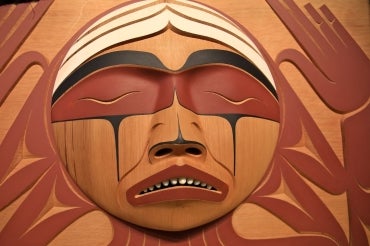Indigenous Trauma and Resiliency – new field in the Master of Social Work program launched at U of T

Published: January 30, 2017
Social worker Lisa Charleson works with families struggling with addiction, domestic violence – even suicide – and much of that pain can be traced back to the residential school system, she says.
When Charleson, who is Nuu-chah-nulth from Vancouver Island’s west coast, learned U of T was launching a field of study in the master of social work program devoted to Indigenous trauma and resiliency, she consulted an elder.
“He told me, ‘Well, long ago when our people were still intact…if there was a dilemma, they would send their people out to get medicine to help solve that dilemma,’” Charleson says.
“So I tend to think of it, that that’s what I’m doing. I’m coming here, and I’m being open-minded to see what’s going to work, what’s going to help save our young people from feeling so hopeless.”
Charleson was at U of T’s Factor-Inwentash Faculty of Social Work last week along with 20 other students for a week-long intensive training program that’s part of the Indigenous Trauma and Resiliency field in the Master of Social Work (MSW-ITR).
Many of the students in this first cohort have been doing frontline social work for years and are vital to the communities they serve, says Professor Faye Mishna, dean of the Factor-Inwentash Faculty of Social Work.
“There were many people throughout Canada who could not pick up and leave their community for two years to go to Toronto to university for an MSW so we developed it so that people could stay in their home communities,” Mishna says.

Factor-Inwentash Faculty of Social Work Dean Faye Mishna (far left) and instructor Rebecca Martell (rear right) with Jane Middelton-Moz (middle row, second from right) and some of the students in the Indigenous trauma and resiliency field of the master of social work (photo by Hannah James)
Mishna, who is participating in the intensive courses with the first cohort, says this field will educate social workers to be prepared to address deep issues related to trauma in individuals, families and communities.
The field is based on the Medicine Wheel, incorporating teachings, and people from four directions – north, south, east and west to create a program that has a very inclusive view of indigeneity and the roots of trauma.
Recognized in the final report from U of T's Truth and Reconciliation Steering Committee, the field came about as a collaboration between the Ontario Federation of Indigenous Friendship Centres (OFIFC), the Middelton-Moz Institute, and the Factor-Inwentash Faculty of Social Work, with the aim of planning better, more culturally relevant ways to work with and heal communities in their jurisdiction.
Read more about the final report
Jane Middelton-Moz, a Vermont-based clinical psychologist and world-renowned speaker and author was instrumental in developing the curriculum. Middelton-Moz, who has worked extensively in Indigenous communities in the U.S. and Canada, says it was important to develop a training model that would help social workers really dig down and understand the roots of trauma and how social patterns develop.
“Many workers do not come with an understanding of trauma and rather come from a diagnostic or behavioural outlook, and many of them are not well themselves,” says Middelton-Moz.
All students are required to develop and maintain their own wellness plans, balancing their mental, emotional, physical and spiritual wellness, supported by MSW-ITR faculty. That way, says Middelton-Moz, students can examine how their own lived experience might affect their work and ability to help others.
“The more whole you become in this process, the more you are able to guide others to this wholeness,” says Charleson.
During the January intensive, Charleson says she has had to challenge her own ways of thinking with exercises that ask students to imagine themselves in different stressful scenarios.
“My brain needed to change,” says Charleson. “We’re all so used to looking at children who are acting up as problems that have to be solved,” she says, adding the program is teaching her how to further understand and examine what’s behind the behaviour.
If we don’t learn how to understand those who are suffering, it “creates a society of so many people who struggle,” she says.
Associate Professor Charmaine Williams says the change that the MSW-ITR field can bring is already palpable.
“The students all come with their own visions and dreams for their own communities,” Williams says, “and in some cases, dreams for connections across communities.”
Jayne Simpson, from Vancouver, has been working for a decade in education. She helps prepare students to transition into post-secondary education. She says a lot of the pain she sees in communities begins with residential schools.
Simpson says she has come to this field of study with a lifelong dream.
“Can we create an institution, a school that’s a place of healing?” she asks. “Instead of school representing violence, abuse and genocide, can it represent a path going forward toward truth and friendship?
“I would love to see that happen, and I’d love to be a part of creating a space like that.”



